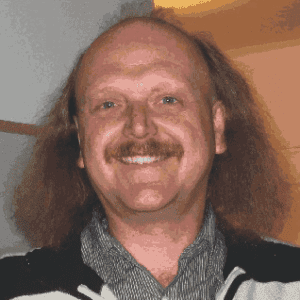
Professor Paul Glover
I am a specialist in the physical properties of rocks, encompassing the matrix and pore structure of rocks as well as how fluids, heat, sound waves, electrical current and radiation pass through them. I have a special interest in the flow of fluids and electrical current through rocks. My work involves mathematically-based theoretical development, computer modelling, laboratory experimentation and the engineering and development of new petrophysical apparatuses.
The industrial and academic applications of these phenomena are extremely wide ranging. potentially including all resiurces we obtain from the earth and all interventions we make in or on it. Applications include (i) the exploration for, and management of, oil, gas, water, geothermal and CO2 storage reservoirs, (ii) earthquake mechanisms, including the generation of synthetic earthquakes, the prediction of volcanic eruptions and the structure of the Earths continental crust.
I lead the Leeds petrophysics laboratory, with current projects studying the use of nanoparticles for improving extraction from existing oil reservoirs, the use of fractal mathematics in modelling heterogeneous and anisotropic reservoirs, the link between microstructure and fluid flow in gas shales using very high resolution CT scanning, the electrokinetic link between fluid flow and electrical potential generation in rocks, and the petrophysics of carbonate rocks.
I have over 30 years experience in academic work, and more than 10 years experience in industry, sometimes working for large multinational companies and sometimes as a director of a small company. I have a broad view that ranges from small scale rock structure to continental scale geophysics, and from the effects of energy and resource exploitation on the individual to the socio-economic needs of society as a whole. Recently, I have been active in communicating the known science around shale gas and fracking to the general public and schools through talks and debates, media appearances and I am currently finishing a book on the subject.
I have always had an interest in the interaction between the provision of energy, resources and the environment, and was the founder of the Section dedicated to this subject within the European Geosciences Union. I currently holds the Chair of Petrophysics and I am Director of Leeds University Petrophysics Laboratory. I am also a representative of the Environmental Industries Commission, and I have recently vacated his position as Chair of Judges for the Environment section of The Undergraduate Awards, a global prize for excellence in undergraduate research.
As a scientist I am not expected to indulge in creative arts. Yet, I paint in oils and watercolours, I write novels and much poetry. All the scientists I know do something creative, and many of the artists have a deep first and knowing more about technology, especially the technology of creativity. I am very happy to take part in discussions concerning the balance between art and science and whether there should ever be any distinction made between these branches of creativity and innovation.